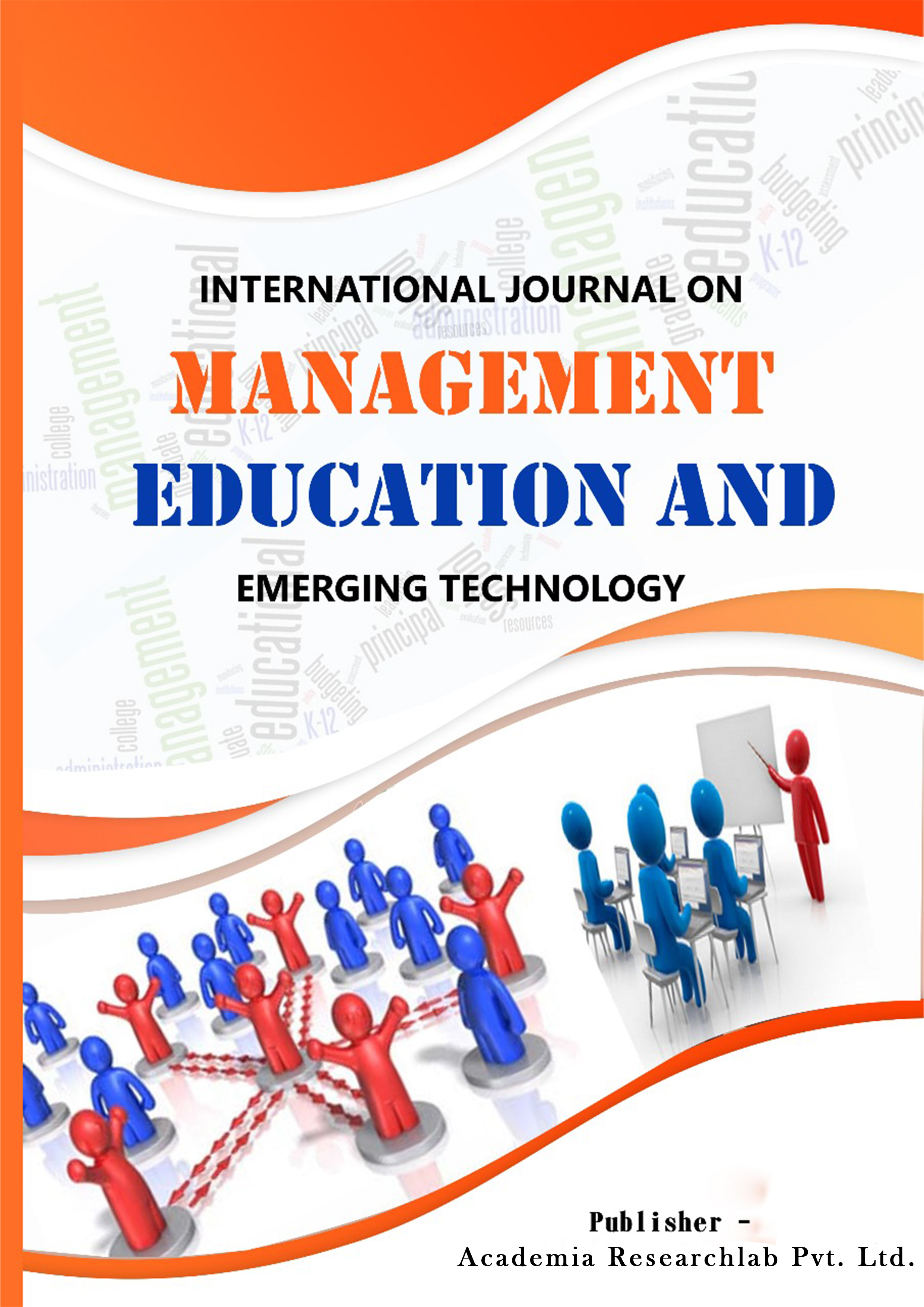Relationship of Stress to Eating Habits of Administrative Employees and Faculty Members of Polytechnic University of the Philippines - Open University System
Keywords:
Esports, competitive physical sports, frequency of training, physical training, mental trainingAbstract
Esports refers to competitive computer gaming, online athletics, and virtual gaming. In recent years, the prevalence of Esports has increased dramatically. As a result of the introduction of distinct competitive categories, electronic games are now regarded as sports, or esports for short. However, many continue to believe that esports should not be regarded as a sport due to their lack of physicality. The objective of this quantitative study was to determine if there is a difference in training between Esports and Competitive Physical Sports athletes. One hundred thirteen (113) Competitive Physical Sports players and eighty-three (83) Esports players from the Polytechnic University of the Philippines were selected at random using simple random sampling to participate in this study. The questionnaire was subdivided into two subcategories: physical training created by the researchers and mental training derived from the study of Carrani, et al (2021). The results of the study revealed that athletes in esports "often" improve both their physical and mental capabilities. Meanwhile, data indicates that athletes who compete in competitive physical sports "almost always" train physically and mentally. In conclusion, the findings of this study show that there is a significant difference between Esports and Competitive Physical Sports athletes in terms of their training.
References
Baumrind, D. (1968). Authoritarian vs. authoritative parental control. Adolescence, 3(11), 255.
Baumrind, D. (1991). The influence of parenting style on adolescent competence and substance use. The journal of early adolescence, 11(1), 56-95.
Bronfenbrenner, U. (1979). The ecology of human development: Experiments by nature and design. Harvard university press.
Bai (2014). The Relationship between Internetaddiction and Parental Rearing Patterns. Central China Normal University
Bolin, J. H. (2014). Introduction to mediation, moderation, and conditional process analysis: a regression- based approach.
Ceci SJ.Urie Bronfen brenner.Am Psychol,2006,61(2):173-174
Chotpitayasunondh, V., & Douglas, K. M. (2016). How “phubbing” becomes the norm: The antecedents and consequences of snubbing via smartphone. Computers in human behavior, 63, 9-18.
Cheng (2023). The influence of parenting style, emotion and personality on Internet addiction of college students. Heilongjiang University Ding &Liu,2022. The Relationship Between Technoference and Internet Gaming Disorder: The Mediating Role of the Need to Belong and the Moderation Role of Friendship Quality. Journal of Psychological
Science. 2022, (06)
Davis, R. A. (2001). A cognitive-behavioral model of pathological Internet use. Computers in human behavior, 17(2), 187-195.
Derevensky, J. L., Hayman, V., & Gilbeau, L. (2019). Behavioral addictions: Excessive gambling, gaming, internet, and smartphone use among children and adolescents. Pediatric Clinics, 66(6), 1163-1182.
Dong (2021). Study on the Relationship between Parental Style,Learning Motivation and Mobile Phone Dependence of Middle Schoo Students. Yanbian University
Fard, Z. S., Mousavi, P. S., & Pooravari, M. (2015). Predictive role of parental acceptance, rejection and
control in the internet addiction of the female students. International Journal of Applied Behavioral Sciences, 2(3), 42-51.
Jiang, Lu Jiang, & Xu. (2010). Revision of the Short Form Egna Minnen av Barndoms Uppfostran for Chinese. Psychological Development and Education, (1), 94-99.
Jia, Yao, Li& Wang (2024). Relation of anxiety and depression to social support and resilience in male felons. Chinese Mental Health Journal. 2024, (04)
Kurek, A., Jose, P. E., & Stuart, J. (2019). ‘I did it for the LULZ’: How the dark personality predicts online disinhibition and aggressive online behavior in adolescence. Computers in Human Behavior, 98, 31-40.
Kokka, I., Mourikis, I., Nicolaides, N. C., Darviri, C., Chrousos, G. P., Kanaka-Gantenbein, C., & Bacopoulou, F. (2021). Exploring the effects of problematic internet use on adolescent sleep: a systematic review. International journal of environmental research and public health, 18(2), 760.
Lan, Liang &Liu (2023). An Exploration of the Differences in Fathers, and Mothers, Parenting Styles and Their Parent-child Relationships. Journal of Western China. 2023, (17).
Lin& Lin (2024). The influence of parental upbringing on adolescent social anxiety: The moderating role of family adaptability.
Liu, Liu & He. (2022). The effect of parenting styles on children's emotions. Medical Diet and Health (01),183-185.
Liu, Yang, Lin, Yu& Zhou (2017). Smartphone Addiction: Concepts, Measurements, and Factors. Chinese Journal of Clinical Psychology. 2017, (01)
Liu, X. (2020). Parenting styles and health risk behavior of left-behind children: The mediating effect of cognitive emotion regulation. Journal of Child and Family Studies, 29, 676-685.
Lee, S. J., & Chae, Y. G. (2007). Children's Internet use in a family context: Influence on family relationships and parental mediation. Cyberpsychology & behavior, 10(5), 640-644.
Maccoby, E. E., & Martin, J. A. (1983). Socialization in the context of the family: Parent-child interaction. Handbook of child psychology: formerly Carmichael's Manual of child psychology/Paul H. Mussen, editor.
McDaniel, B. T., & Coyne, S. M. (2014). Technoference”: The interference of technology in couple
relationships and implications for women’s personal and relational well-being. Psychology of Popular Media Culture 5, 1 (2014), Advance online publication.
Morris, A. S., Silk, J. S., Steinberg, L., Myers, S. S., & Robinson, L. R. (2007). The role of the family context in the development of emotion regulation. Social development, 16(2), 361-388.
Mo (2022). Nomotism, Negative Emotions, and Internet Addiction in College Students: Based on the Latent Growth Model
Niu, X., Gao, X., Zhang, M., Yang, Z., Yu, M., Wang, W., ... & Zhang, Y. (2022). Meta-analysis of structural and functional brain alterations in internet gaming disorder. Frontiers in psychiatry, 13, 1029344.
Perris, C., Jacobsson, L., Linndström, H., von Knorring, L., & Perris, H. (1980). Development of a new inventory for assessing memories of parental rearing behaviour. Acta Psychiatrica Scandinavica, 61(4), 265- 274.
Pop-Jordanova, N., & Loleska, S. (2021). Neuropsychological correlates of internet addiction. prilozi, 42(3), 17-28.
Saarni, C. (1999). The development of emotional competence. Guilford Press.
Sun (2023). Research on Chain Mediation Model Between Parenting Style and Academic Self Efficacy. China Metallurgical Education. 2023, (06).
Sun, Tong, Zheng& Zhao (2017). Case-control study on the risk factors of internet addiction disorder tendency among adolescents. Modern Preventive Medicine. 2017, (12)
Suler J. The Online Disinhibition Effect. Cyber Psychology & Behavior, 7, 321-326[J]. DOI, 2004, 10: 1094931041291295.
Song (2020). The Effect Mechanism and intervention of parent-child Technoference on smartphone addiction among adolescent, Central China Normal University.
Jiao, T., Guo, S., Zhang, Y., Li, Y., **e, X., Ma, Y., ... & Tang, J. (2022). Associations of depressive and anxiety symptoms with non-suicidal self-injury and suicidal attempt among Chinese adolescents: the
mediation role of sleep quality. Frontiers in psychiatry, 13, 1018525.
Wachs, S., & Wright, M. F. (2018). Associations between bystanders and perpetrators of online hate: The moderating role of toxic online disinhibition. International journal of environmental research and public health, 15(9), 2030.
Wang (2021). Effects of Sports Behavior on Depression Trend of Adolescent:Based on the Mediating Effect of Sports Motivation and Subjective Exercise Experience. Sports & Science. 2021, (06)
Wang, Peng, Cheng, Rong, Hu, Xu, Guan& Zha (2023). Prevalence of and impact of depression and anxiety on suicidal behaviors among high school students: a cross-sectional survey in five provinces, China. Chinese Journal of Public Health. 2023, (10)
Wang, He, Liu, Shou& Zeng (2006). A Comparative Study of Parenting Styles of Adolescents Tending to Internet Addiction and Non-Internet Addicted Adolescents. Compilation of Papers from the Inaugural
Meeting of the Branch of Psychosomatic Medicine of Zhejiang Provincial Medical Association and the 2006 Annual Meeting of Zhejiang Provincial Academic Conference of Psychosomatic Medicine
Wei, Sun, Shang, Liu, Cui, Wang& Li (2017). Relationship between parenting style and internet addiction in Chinese adolescents:a meta-analysis. Modern Preventive Medicine. 2017, (19)
Xie, Hu, Wei& Li (2019). Effect of Maternal Parenting Style on Social Adjustment in 4Years Old Children: the Mediating Role of Executive Function. Chinese Journal of Clinical Psychology. 2019, (03)
Xu (2003). Human behaviour and the social environment. SOCIAL SCIENCES ACADEMIC PRESS (CHINA).
Xiong, Shen, Yang, Wang, Yi& Zhu (2023). Alexithymia and Adolescents’ Non-Suicidal Self-Injury: The Chain Mediating of Maladaptive Emotion Regulation and Depression. Chinese Journal of Clinical
Psychology. 2023, (03)
Yang, J., Wang, N., Gao, L., & Wang, X. (2021). Deviant peer affiliation and adolescents’ cyberbullying
perpetration: Online disinhibition and perceived social support as moderators. Adolescent and youth services review, 127, 106066.
Yao,Chen&Zhao(2004). The Study on the Age Characters, Development Trend and Sex Differences of Preschoolers’ Emotion Competence. Psychological Development and Education. 2004, (02)
Yu (2019). A Study on the Relationship between Parenting Style, Parent-Child Relationship and School Adjustment of Children with Developmental Disabilities. Chongqing Normal University
Zhong, Zhou, Qi& Liu (2023). Parental Technoference and Adolescent Smartphone Addiction: The
Mediating Role of Self-disgust and Social Sensitivity. Chinese Journal of Clinical Psychology. 2023, (06)
Zhan, Gu& Wang (2023). The Relationship Between Parenting Types and Adolescent Internet Addiction:The Mediating Role of Cognitive Emotion Regulation Strategies. Studies of Psychology and Behavior. 2023, (06)
Zhang, Liang, Chen (2013). Social Reticence in Chinese Children: Relations with Temperament and Social Adjustment. Acta Psychologica Sinica. 2013, (01)
Zhang, J., Dong, H., Zhao, Z., Chen, S., Jiang, Q., Du, X., & Dong, G. H. (2020). Altered neural processing of negative stimuli in people with internet gaming disorder: fMRI evidence from the comparison with
recreational game users. Journal of affective disorders, 264, 324-332.
Zhang, Luo, Pan, Wang, Nie& Li (2024). The Association Between Non-Suicidal Self-Injury and Suicide Attempts in Adolescents: the Moderating Role of Anxiety and Depression. Chinese Journal of Clinical Psychology. 2024, (03)
Additional Files
Published
How to Cite
Issue
Section
License
Copyright (c) 2025 International Journal on Management Education and Emerging Technology(IJMEET)

This work is licensed under a Creative Commons Attribution-NonCommercial-NoDerivatives 4.0 International License.





